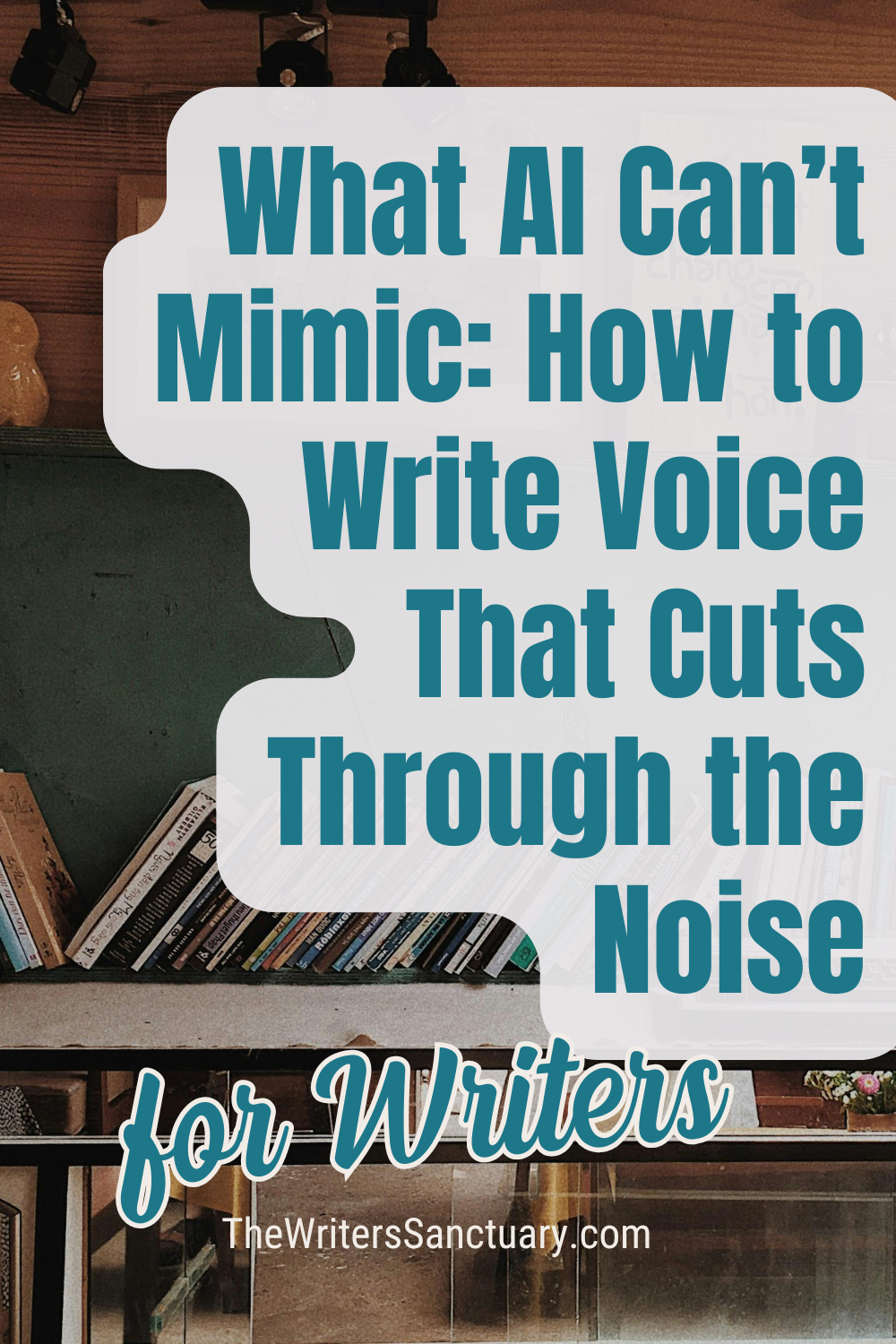What AI Can’t Mimic: How to Write Voice That Cuts Through the Noise
Voice is the one thing that instantly sets your writing apart. It’s what makes a reader think, “I’d follow this narrator anywhere.” It’s also the one thing AI can’t really fake. It might get the grammar right and copy the structure of a sentence, but it can’t create the soul behind the story.
So how do you develop a voice that sounds like you—not like an algorithm or a writing manual?
Here’s a breakdown of what voice really is, how to find yours, and a few tools to sharpen it as you go.
What Is Voice, Really?
Voice is made up of how a story sounds on the page. It’s not just about character dialogue or word choice. It’s rhythm. It’s tone. It’s worldview. It’s what you notice in a scene and how you describe it. It’s also the emotional filter that everything passes through.
You can have ten writers describe the same event, and they’ll all sound completely different because of voice.
Mini Quiz: What Kind of Voice Are You Developing?
Pick the answer that feels most natural to how you’d describe the moment someone walks into a haunted house:
a. “Her breath curled like fog in the stale air.”
b. “Every horror trope screamed RUN, but she couldn’t resist.”
c. “She stepped over a dead rat and muttered, ‘Classic.’”
d. “The house had a sadness, like it remembered being loved.”
If you chose:
Mostly a: You lean poetic and atmospheric.
Mostly b: You’re high-energy and humorous.
Mostly c: You’ve got dry humor and a modern edge.
Mostly d: You write introspective, emotionally driven prose.
There’s no wrong answer. What matters is knowing what feels natural and then refining it with intention.
5 Practical Ways to Develop Your Writing Voice
1. Journal in the voice of your main character.
Take five minutes and write a rant, a confession, or a secret in their voice, not yours. Let them be snarky, scared, brutally honest, overly dramatic, whatever fits. You’ll discover quirks, rhythms, and word choices that bring your prose to life.
2. Play with sentence length and rhythm.
Short. Snappy. Sharp. Or maybe long, winding, thoughtful. Read your favorite author’s work out loud and then your own. Do you pause in the same places? Do you use repetition? Do your sentences move the way you want them to? Rhythm is half the battle.
3. Try a sensory focus exercise.
Write a scene where someone is sitting in a coffee shop, but only describe it using smell. Or only through sound. Then do it again with touch. The sense you gravitate toward naturally says a lot about your voice, and training the others can make it stronger.
4. Find your emotional lens.
Is your writing voice warm and hopeful? Dark and brooding? Funny and detached? Curious and earnest? Write a paragraph in your default tone, then rewrite it in the opposite tone. You’ll start to recognize what comes naturally and where your strengths are.
5. Build a voice bank.
Start collecting voice moments you love from your own writing and others’. Save phrases, metaphors, and sentence structures that make you pause. Ask yourself what you like about them. Is it the rhythm? The honesty? The surprise? Learn from what inspires you.
Bonus: The Voice Checklist
Use this list when revising a scene to make sure voice is pulling its weight:
Does the scene sound like the character, not just say what happened?
Are the word choices consistent with the tone and emotional filter?
Is there specificity in the metaphors or descriptions?
Would a reader be able to tell this is your writing without seeing your name?
The more you pay attention to your own patterns, preferences, and instincts, the more consistent your voice becomes. It doesn’t mean you only write one way, but it does mean readers know when it’s you.
In a world full of AI-generated filler, the thing that cuts through the noise isn’t perfection. It’s personality.
Want help?
If you’re serious about finding and strengthening your unique writing voice, the Iconic Mentorship is the place to do it. You’ll get expert guidance, voice-focused feedback, and the support of a tight-knit community of authors working toward real, sustainable careers. Let’s make your voice unmistakable. Learn more about Iconic Mentorship here.


